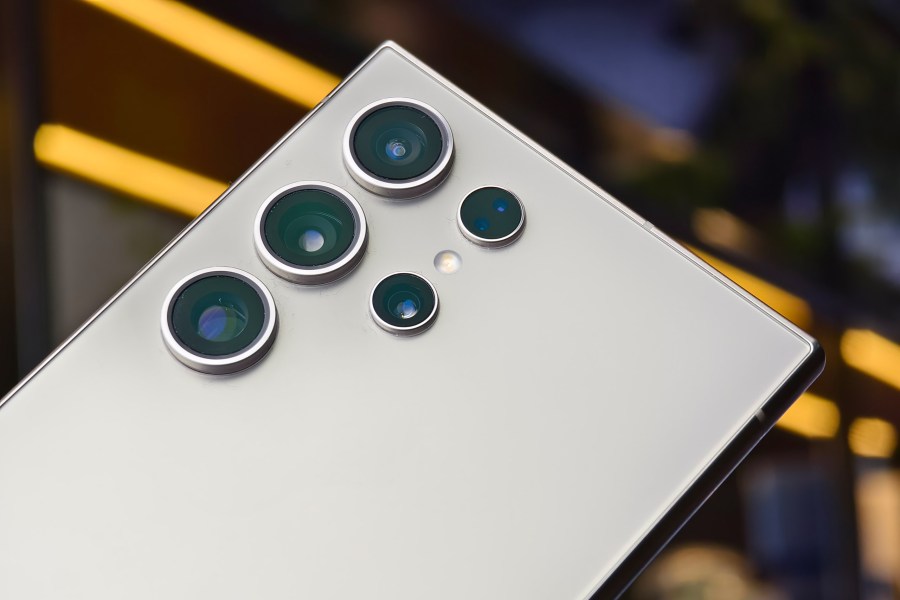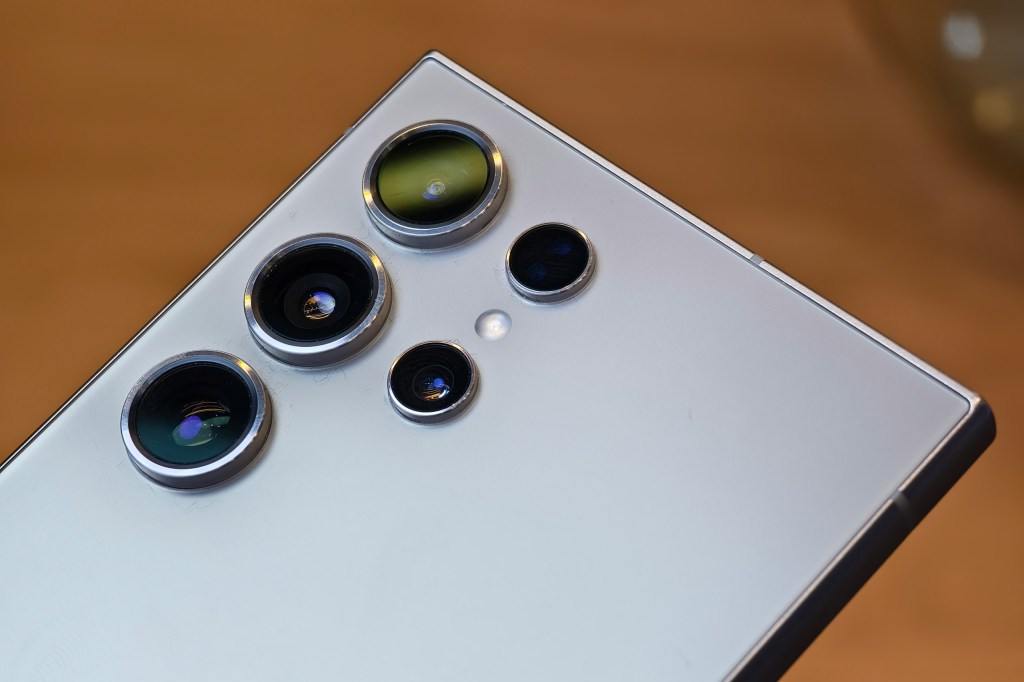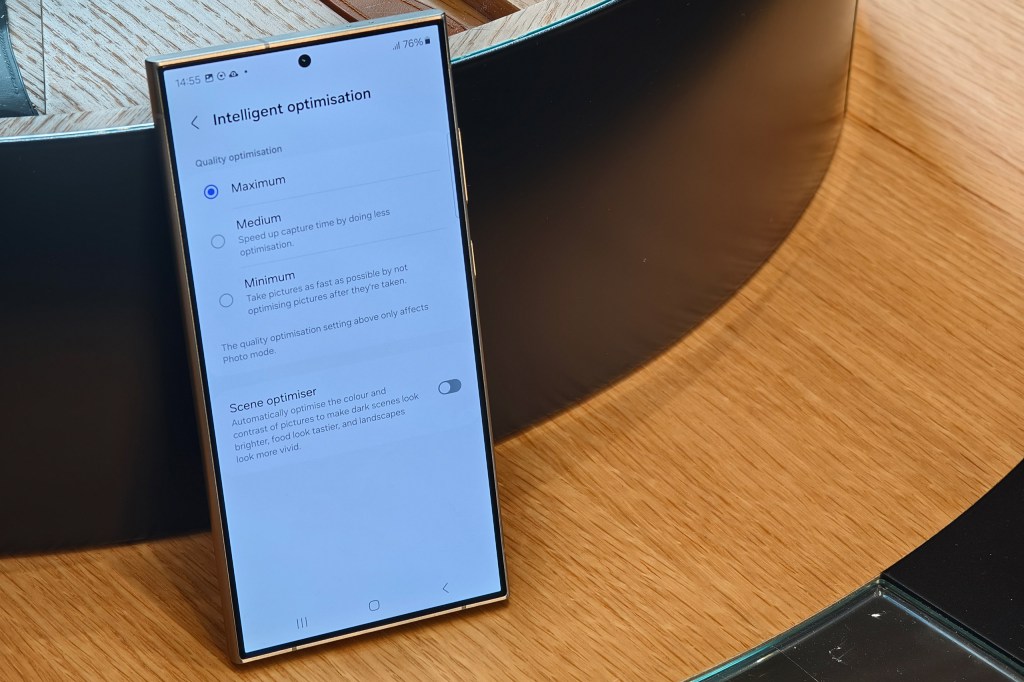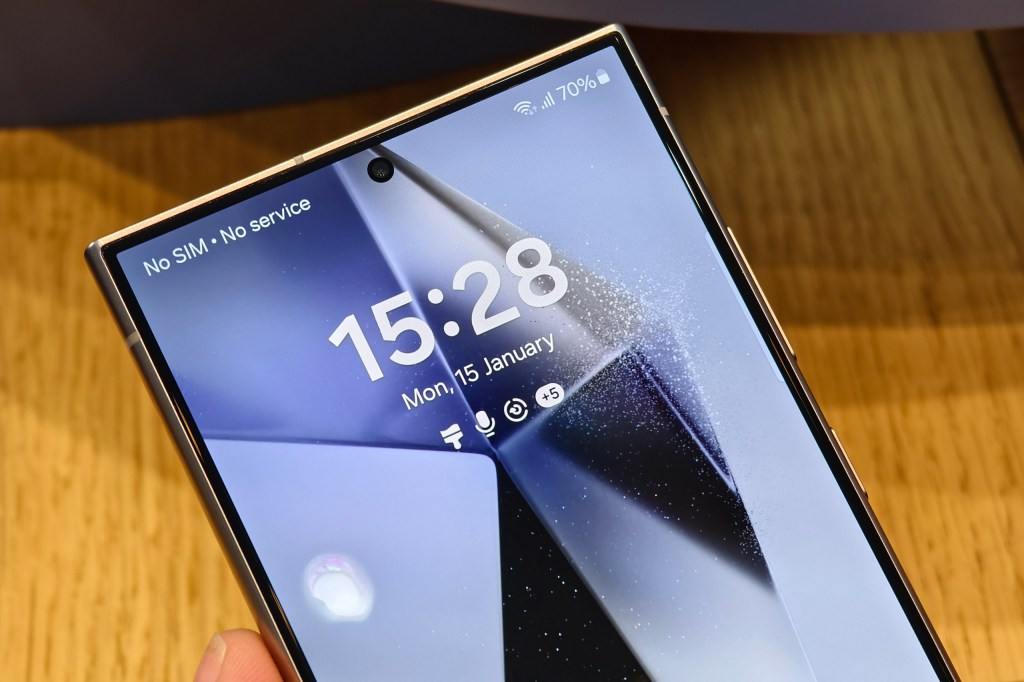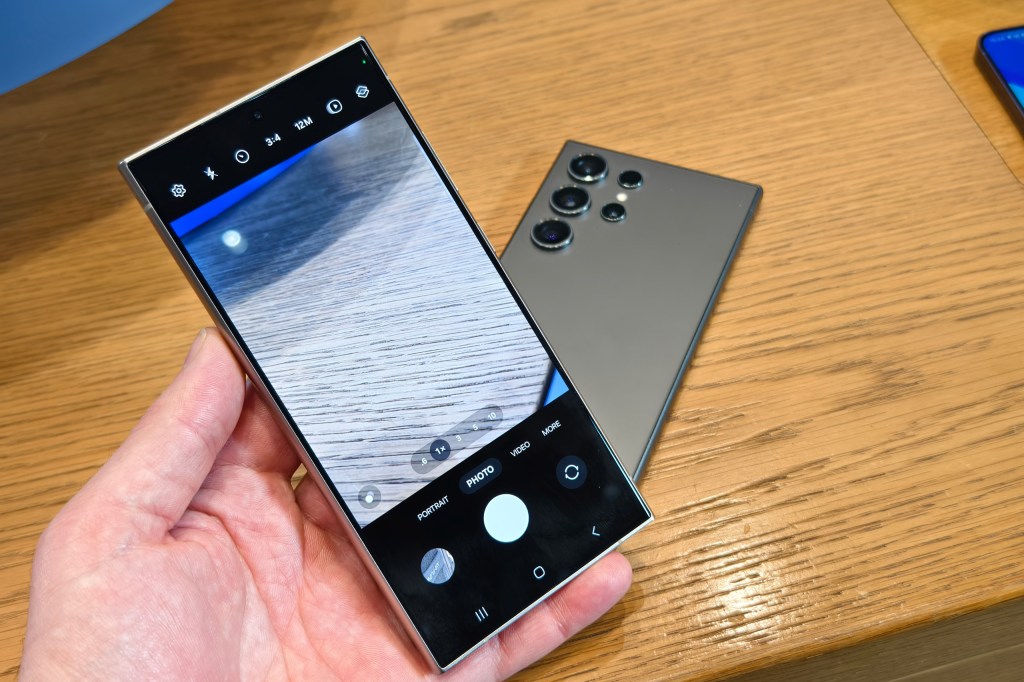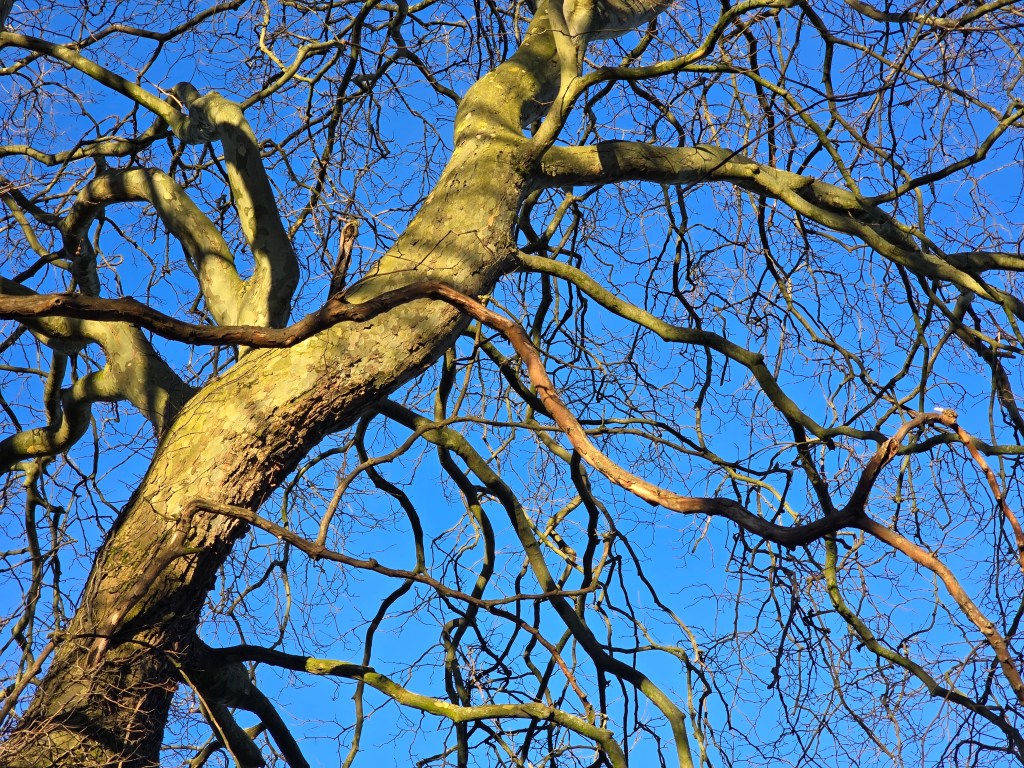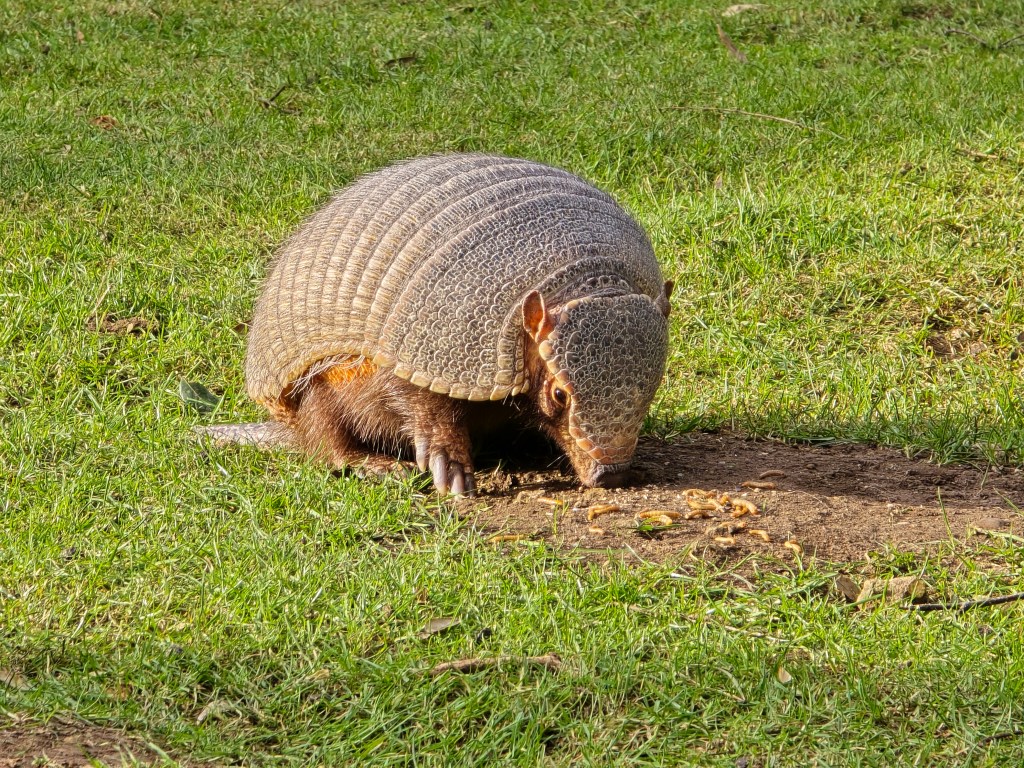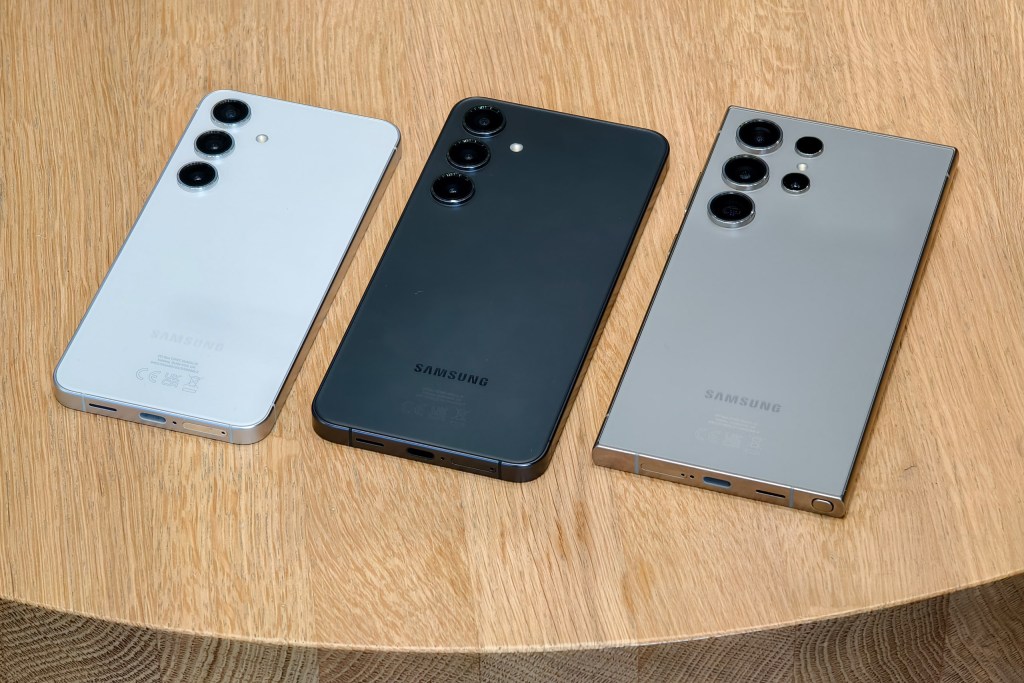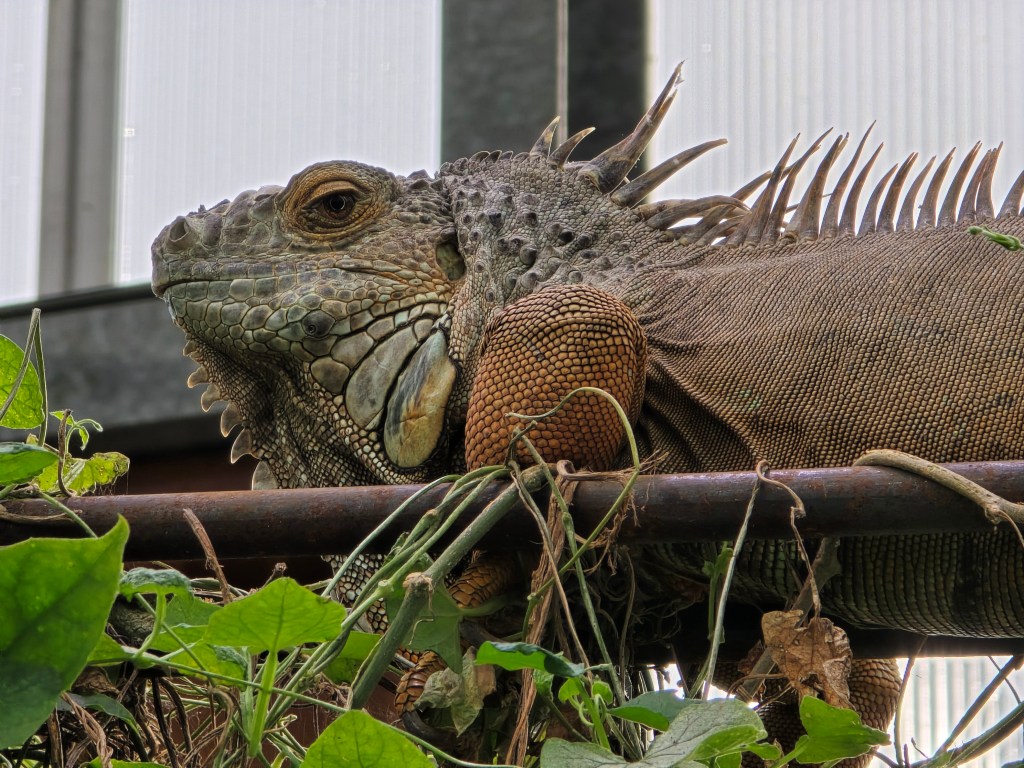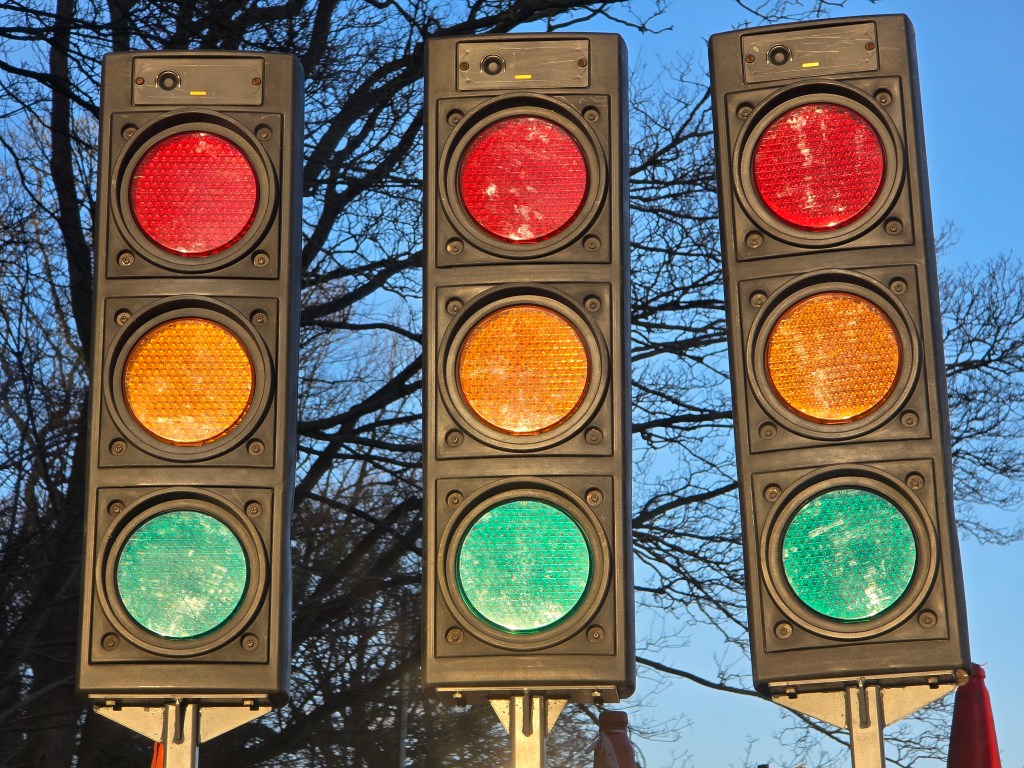Amateur Photographer verdict
The S24 Ultra is an incredible all-round camera-phone, and amongst the best camera phones, and smartphones, out there – but is not perfect.- Improved image quality (slightly)
- Massively improved screen (reduced reflection and improved scratch resistance)
- Added AI features
- Reflection removal particularly useful
- Macro mode lags behind others
- Shutter lag really hurts for fast moving subjects
- 45W charging is looking slow
The Samsung Galaxy S24 Ultra, the penultimate flagship camera phone from Samsung, added a vast array of AI photography features over its predecessors, which is likely to make it one of the best phones for photography ever released! But how does it perform? Find out in our full review by expert Joshua Waller.
Samsung Galaxy S24 Ultra features:
- 200MP f/1.7 main camera, with OIS, 1/1.3inch, 23mm
- 12MP f/2.2 ultra-wide-angle camera (0.6x), 13mm
- 10MP f/2.4 3x telephoto camera, with OIS, 69mm
- 50MP f/3.4 5x telephoto camera, with OIS, 115mm
- – 5x telephoto camera has 10x Super AI / Multi-frame / Super Resolution
- 12MP f/2.2 PDAF selfie camera (same on all S24 models)
- 8K 30fps video, 4K 120/60/30fps
- 6.8inch screen, 1-120Hz, 2600nits, with Corning Gorilla Glass Armor*
- Titanium frame, 5000mAh battery
- Snapdragon 8 Gen 3 processor
- Available in Titanium gray, black, violet (blue-ish), and pale yellow
- From $1,300 / £1,099 (256GB)
How we test phones
We review smartphones from the perspective of choosing one for its photography and camera performance. We look at what the Samsung Galaxy S24 Ultra offers, and the features included for photography and video, paying particular attention to the cameras on the phone, photo editing capabilities, as well as the output from each different lens.
Features, Hardware and Design
Upon introducing the new S24 series Samsung keenly explained that we are now entering the “Era of AI” – with AI becoming a part of every new smartphone announced. In fact, it’s been in many phones for a while now: subject detection AI has featured on Samsung phones for several years.
The new generation of AI, introduced with the S24 series (now available to the S23 and even S22 series), is used both when taking photos, and when editing them: with on-phone AI technology when shooting, and a mix of on-device and cloud-based AI features when editing.
In truth, the cameras and photography features of this year’s S25 Ultra contain few meaningful advantages over the S24 Ultra. The most noteworthy is that the ultrawide of the S25 features a 50MP sensor instead of a 12MP one. They are both excellent phone cameras; the difference in prices is greater between them than that of the quality. At present, the S24 represents better value for its photography.
Similar features were introduced with the new Google Pixel 8 series, with Google’s Magic Editor, and photography features are improved with an “AI ProVisual engine”; said to improve night photography, noise performance, zoom quality, colour reproduction, as well as HDR (High Dynamic Range) imaging.
HDR shooting was improved and this SuperHDR feature includes HDR preview so you can see how it’ll look before you take the photo. There’s also support for HDR shooting in third party apps like Instagram, and Snapchat, as well as an improved HDR gallery.
One AI feature that particularly stands out as useful for photographers was the new “Reflection removal (AI)” feature – this looks particularly useful if reflections from glass (etc) have been an issue in your photos.
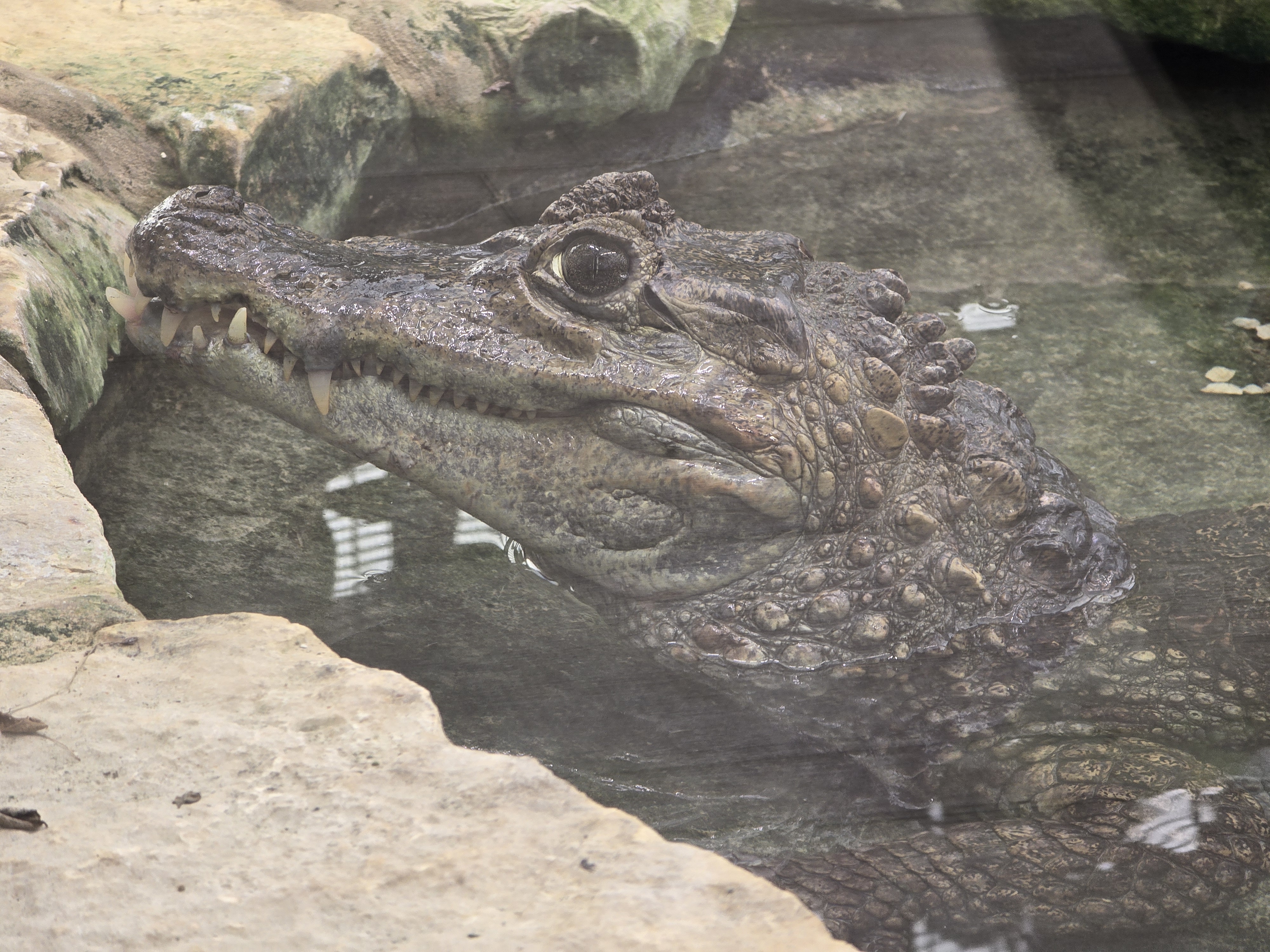
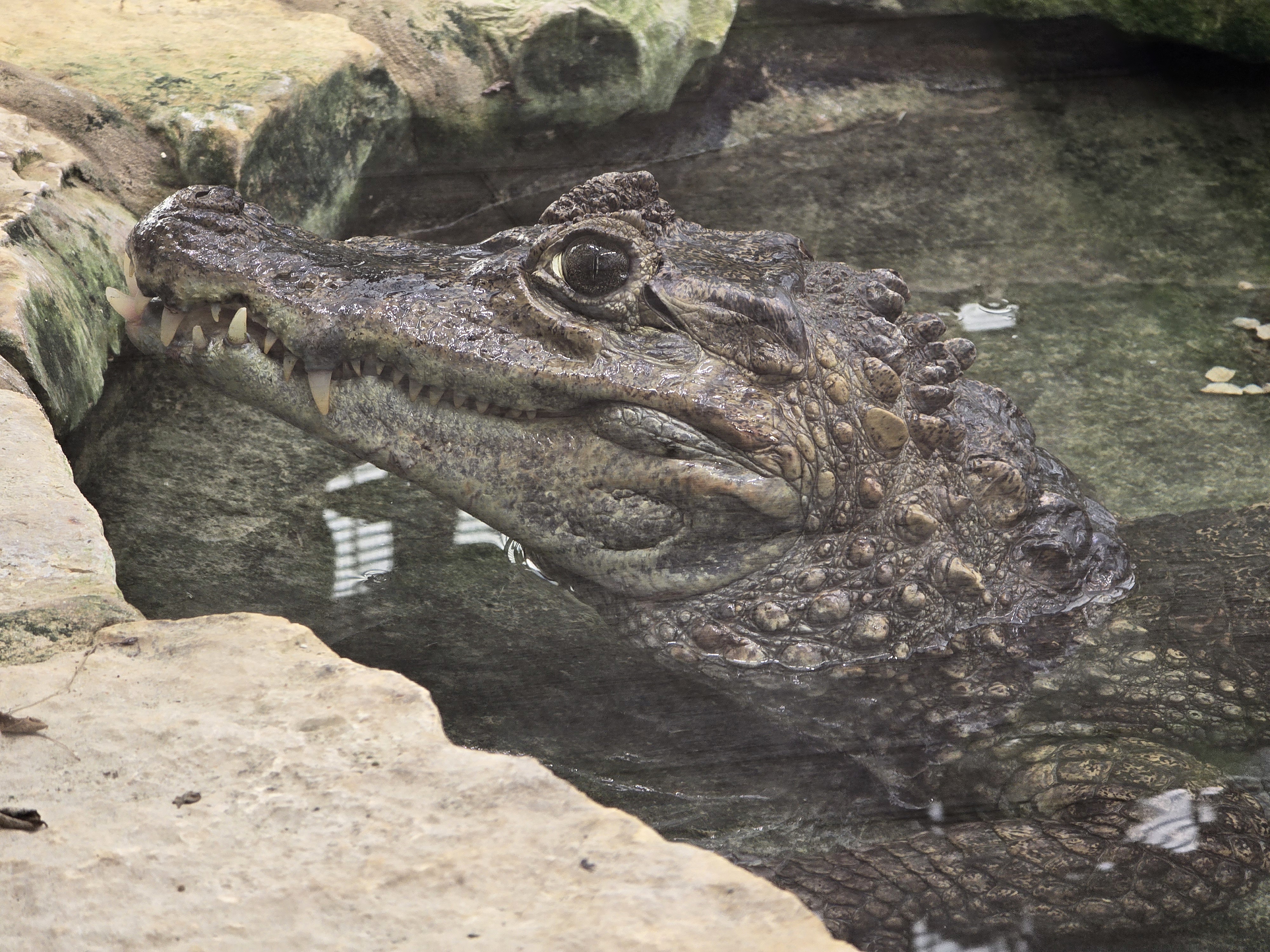
Other on-device AI photo editing features include Portrait effect, Background blur, and Remaster photo. The options available will differ depending on what the phone detects and thinks will be useful editing options. You can also select an object directly in the Gallery, and create a sticker of the object.
In-cloud AI based features include removing, moving, and resizing objects (just like Google’s Magic Editor), as well as generative fill. For example if you want to rotate an image, it can then fill in the missing bits.
Samsung say that the meta data includes whether AI features have been used in editing, to ensure that there is clarity and transparency around these features. A watermark will also be added to the image, which can’t be removed with Samsung’s own AI tools.
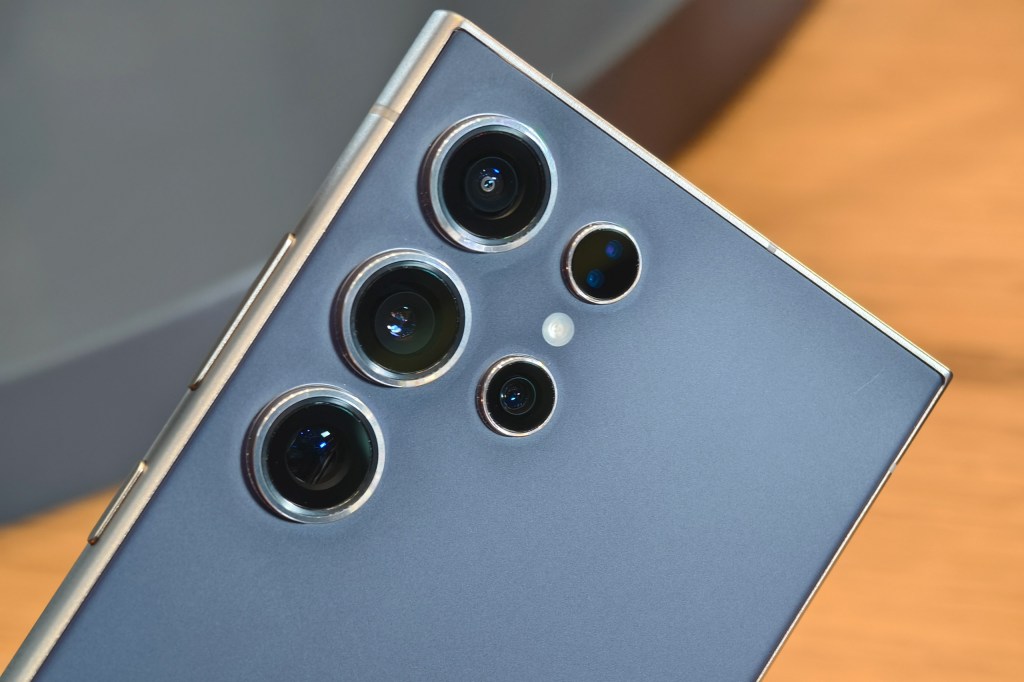
The new 50MP 5x telephoto camera replaces the 10x telephoto camera of the S22/S23 ultra
The S24 Ultra uses the 50MP 5x telephoto camera along with AI tools to improve the image quality when shooting at 10x telephoto zoom. The sensor used is not only a higher resolution than the 10MP sensor in its predecessor, but is also larger, which Samsung say improves low-light performance.
AI can also be used to generate intermediate frames in video, such as letting you create slow-motion footage from your videos, after you’ve recorded them. The phone can record 8K video at normal frame rates (up to 30fps), as well as 4K video at up to 120fps (as well as 60 and 30fps).
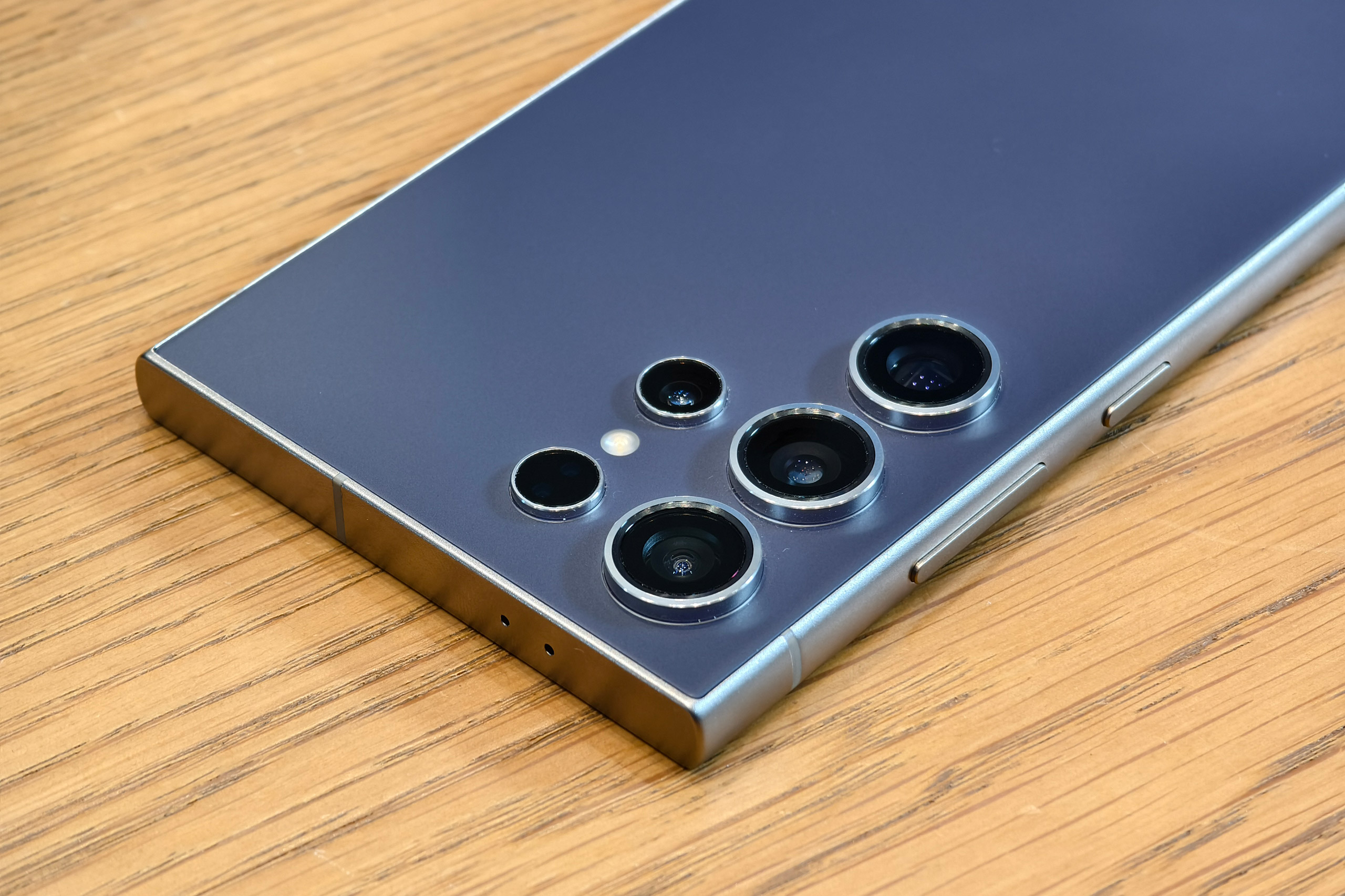
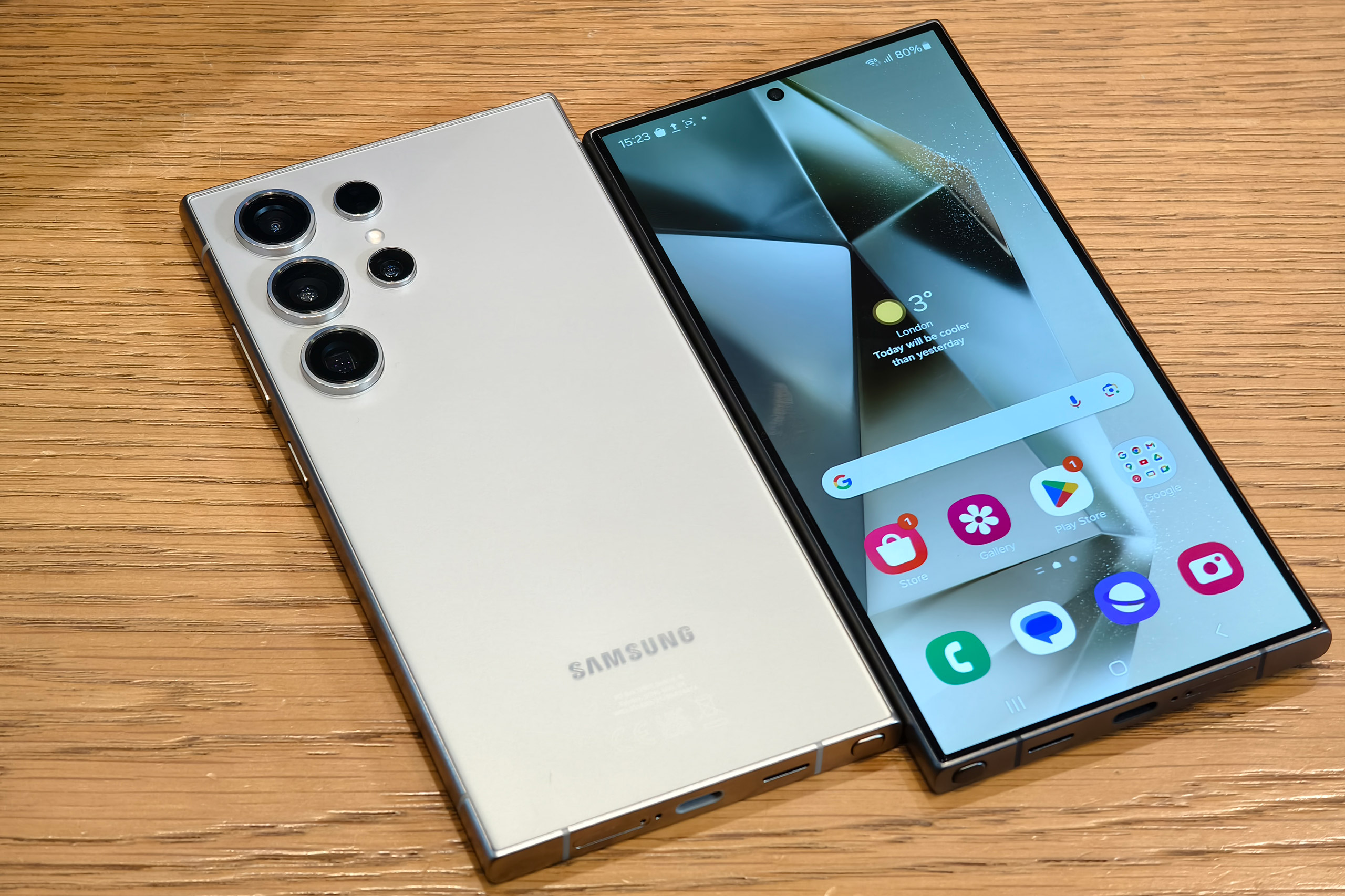
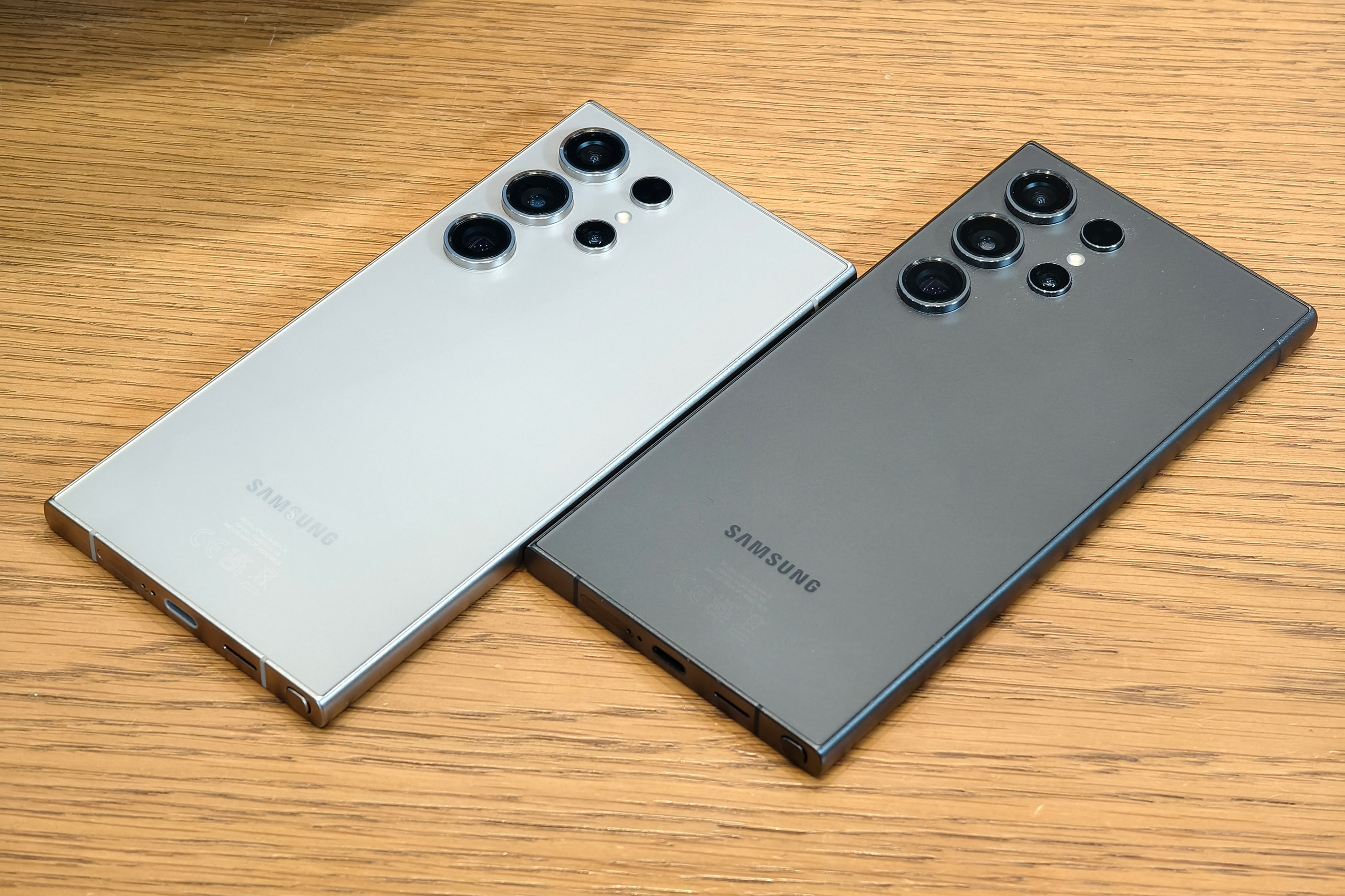
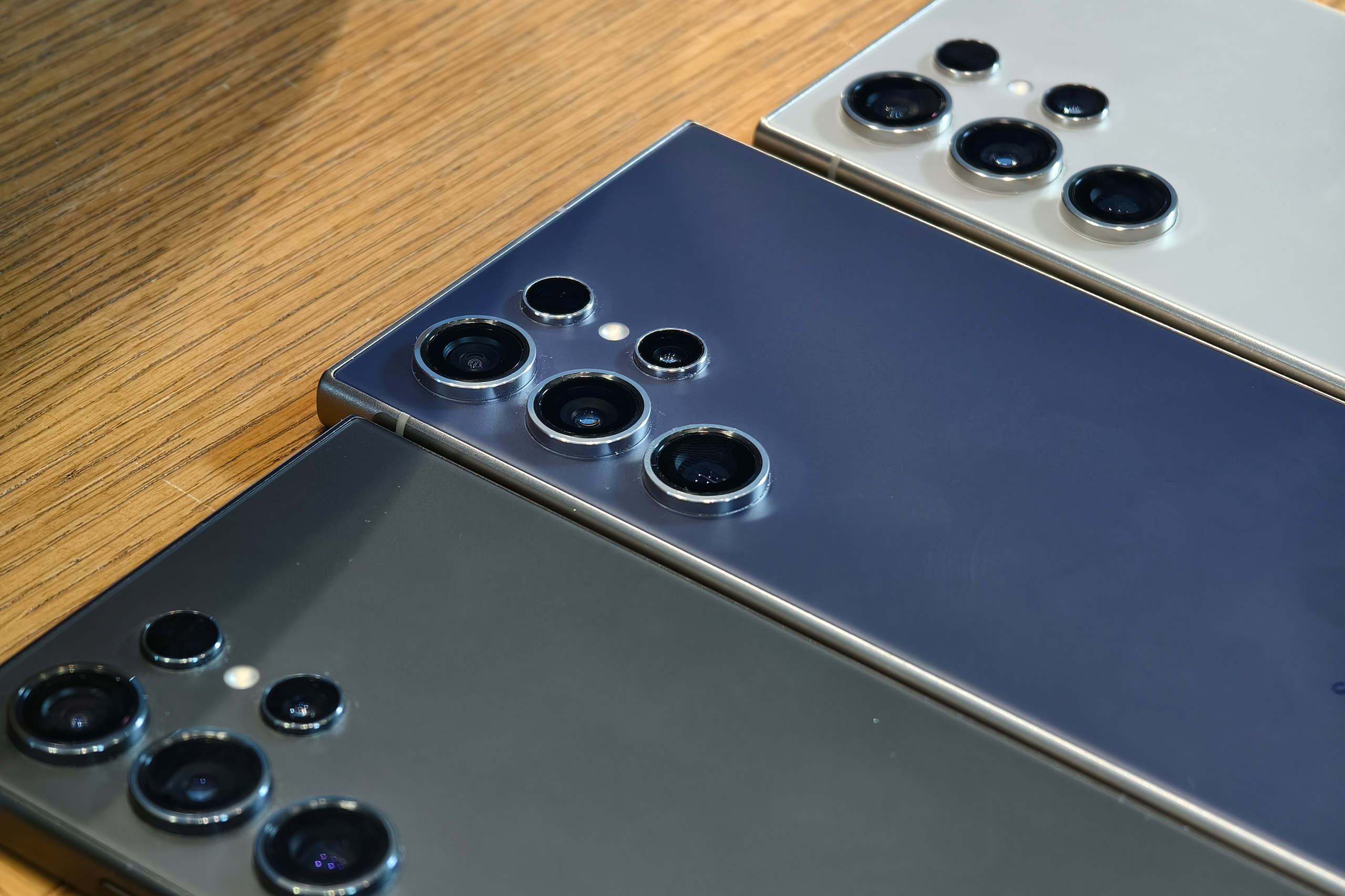

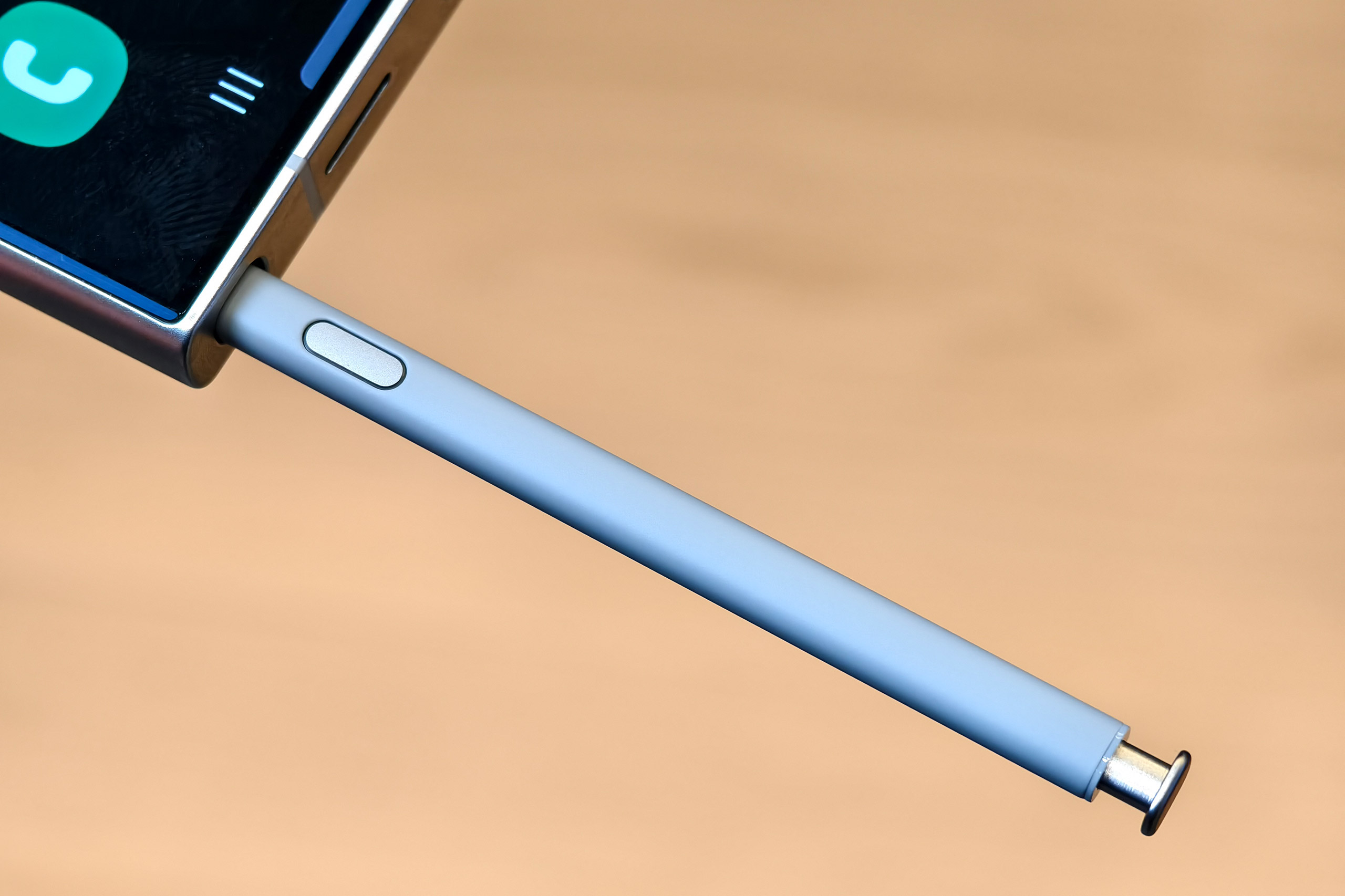
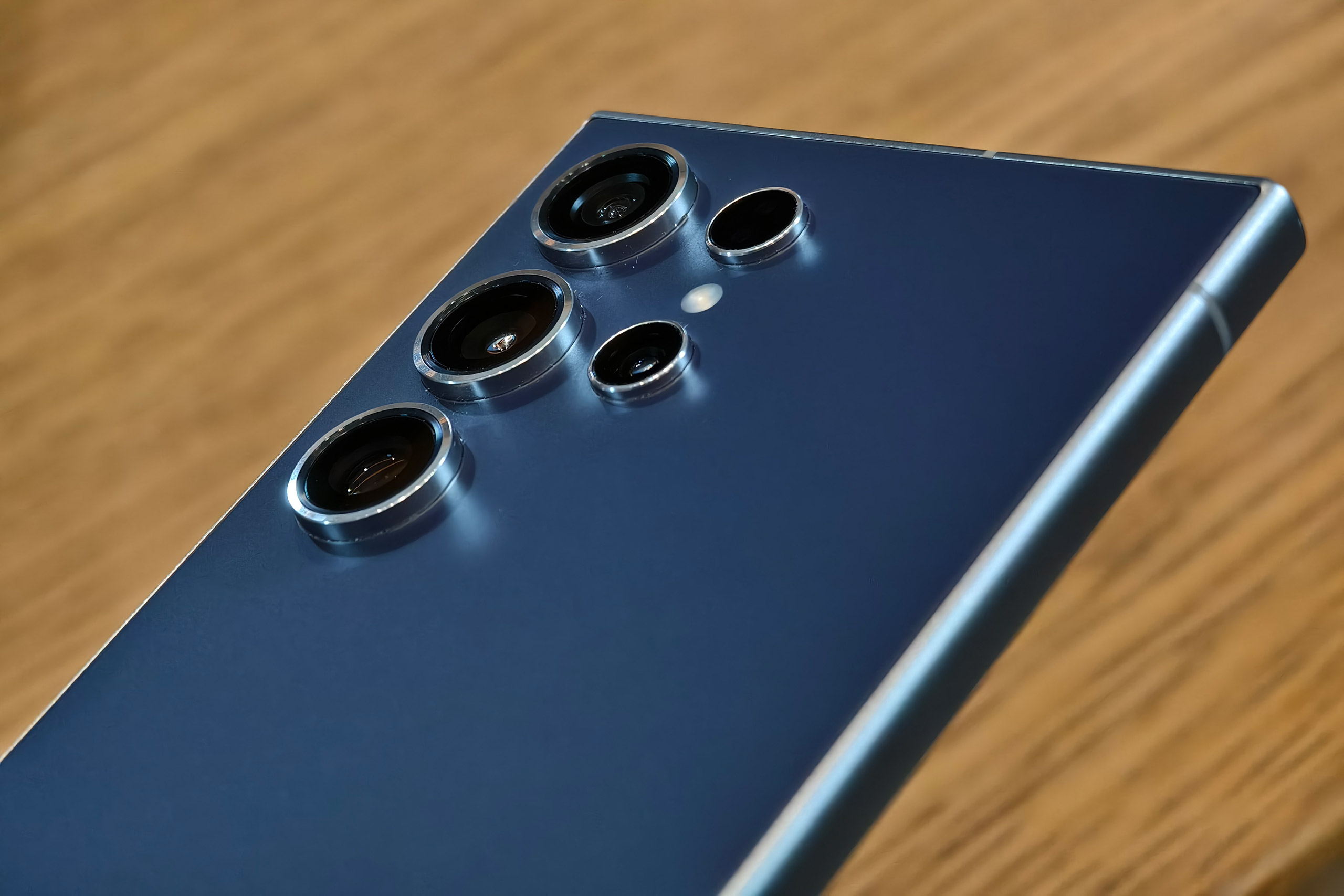
Updated screen design
The S24 Ultra comes with *Corning Gorilla Glass Armor, which is said to have 4x stronger scratch protection, and reduces glare by 75%. Gorilla Glass Victus 2 is used on the back, and the frame is made from Titanium. The screen also offers a brightness of up to 2600nits, which is seriously bright; although not quite as bright as that of the OnePlus 12.
The reduction in glare and reflections is really noticeable, and impressive, especially when you see this next to another phone. Since we first reviewed the S24, however, we have noticed some wear in the anti-reflective coating of the screen.
The design may, at first glance, look remarkably like the S22 and S23 Ultra, but the screen, and back, are no longer curved, and this gives the phone a slightly more business-like appearance. The cameras take up a bit more space on the back of the phone as well.
Oh, and another thing, just like Google phones, the Samsung S24 series will be getting updates for 7 years.
Camera App…
The camera app is very similar to those seen on other Samsung phones, like the S22 and S23 series, and if you’ve kept your phone up to date, then you shouldn’t see much difference between the models: including the new AI features, as mentioned.
One instantly visible change is that there are now five default camera options: 0.6, 1x, 3, 5 and 10 being the choices – up from the four of the S23 (0.6, 1x, 3, 10).
Options available in the Portrait mode have been updated, so instead of just 1x and 3 (on the S22 Ultra), you now have 1, 2, 3 and 5x available, giving a really extensive range of portrait lenses. You can adjust the blur as well among other things, including the backdrop, as well as using the night mode for night portraits.
AI features aren’t just limited to photography though; these also apply in search, translation, transcribing and other functions.
AI Editing and AI Generative Fill
Using the generative fill to straighten an image, and expand the image, does a reasonable job if there isn’t much noteworthy in the edges of the frame. However, houses or other things with detail will appear smudged out. It’s a shame that the camera doesn’t simply use a second photo taken using the ultra-wide-angle camera to expand the photo when using the normal or telephoto cameras.
We also tried to remove the car in this image, only to have it replaced by a different AI generated car. Your results may vary, but for the most part, I didn’t find these very useful. Hopefully, improvements will be made with future updates.
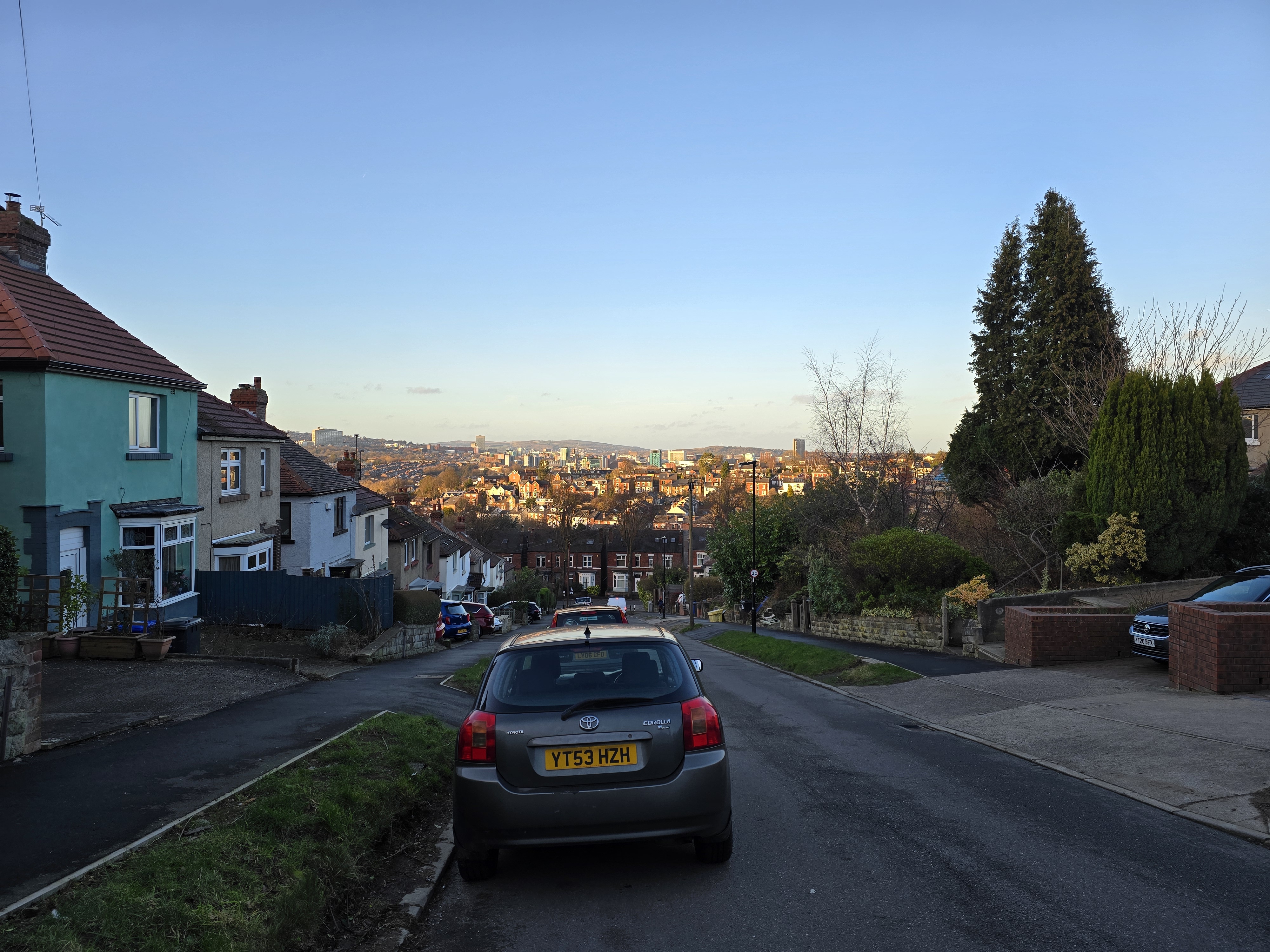
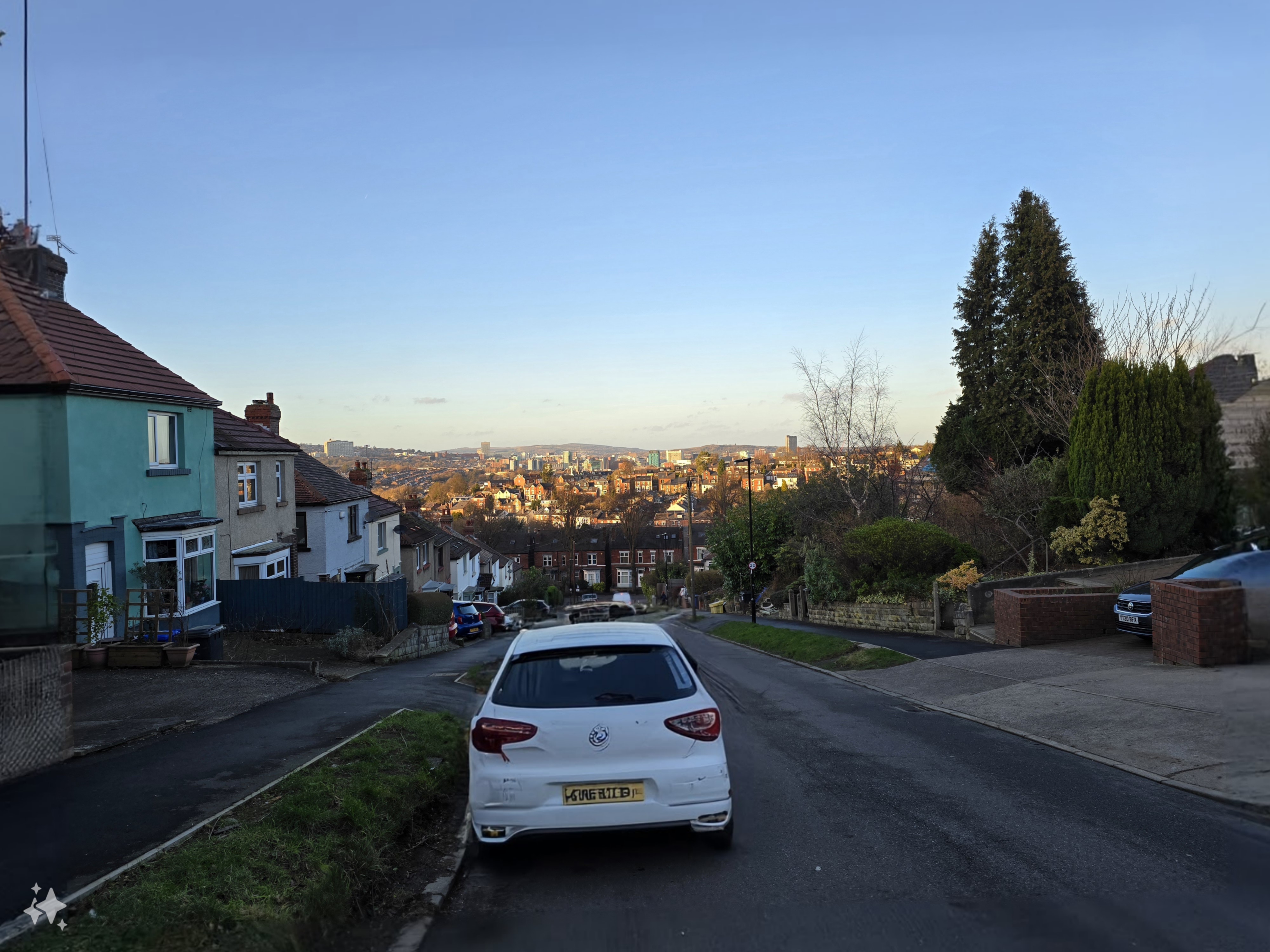
Performance
The Samsung Galaxy S24 Ultra gives bright, colourful images, with good levels of saturation. Exposure and dynamic range are very good, and the majority of the time you get consistent results without any focus issues. However, it’s when you start pushing the cameras to the limit that image quality may drop. More on this later…
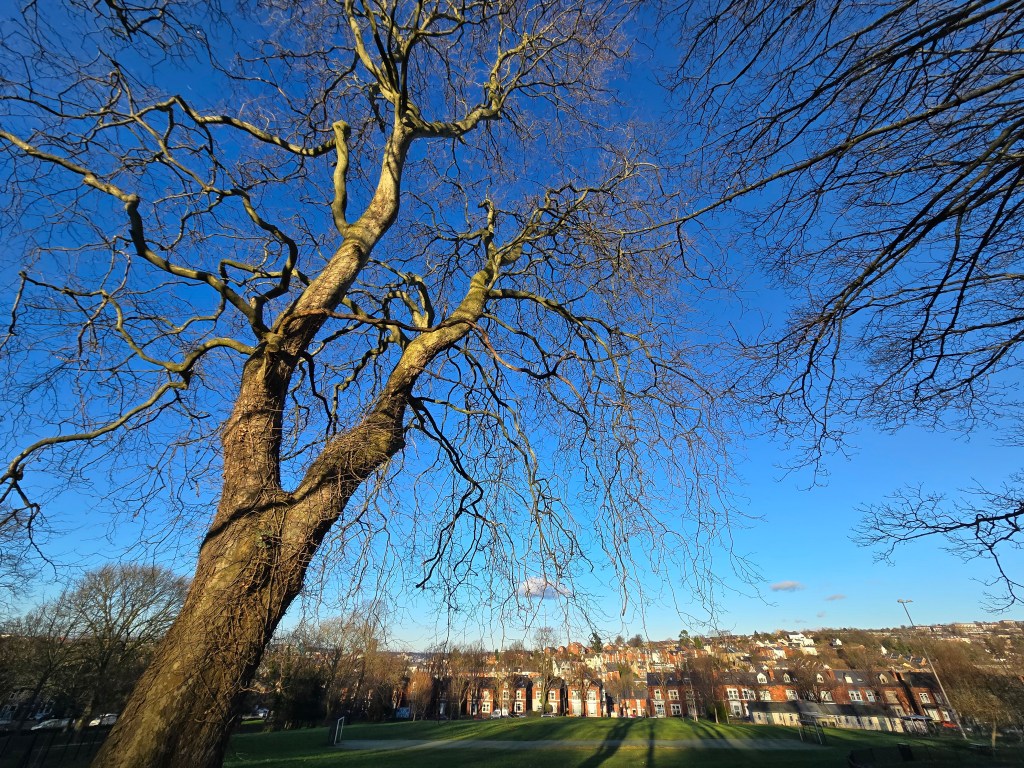
First we look at the ultra-wide-angle camera on the S24 Ultra. The ultra-wide-angle camera is a 12MP f/2.2 camera (with 0.6x zoom), and gives a 13mm equivalent. Importantly, this camera features auto-focus, which means it can be used for close-up photos. The results from this camera are good. As with most ultra-wide-angle cameras, there is noticeable distortion towards the corner, and the image does get a little bit softer. Overall though, the results are really pleasing, with image quality only really dropping in low-light, or when taking close-up photos.
The main camera uses a 200MP sensor, with 16-in-1 pixel binning to give 12.5MP images. For many people leaving the camera on the default resolution is likely to be the best option, but if you want, you can also shoot at 50MP or 200MP. However, you’ll need to be prepared to have much larger, and therefore, slower to process images.
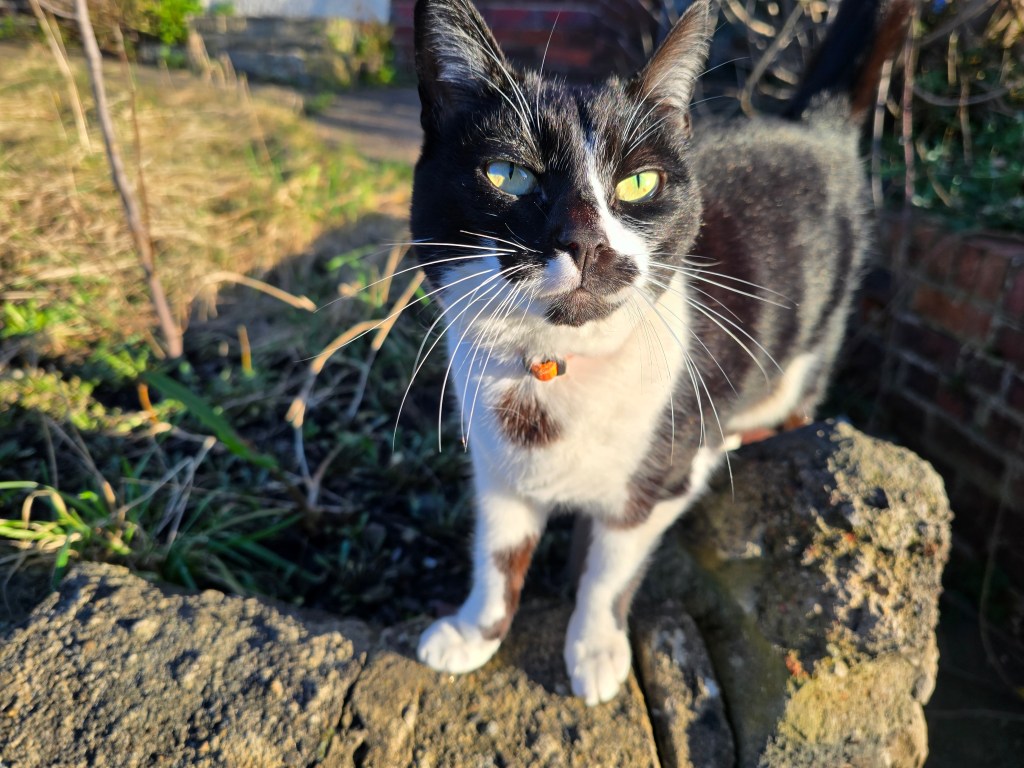
The camera can struggle with moving subjects, and it seems like a missed opportunity that its AI technology doesn’t detect moving subjects and increase the shutter speed accordingly. I took a number of shots of animals, and missed a large number of them due to the shutter speed being too slow.
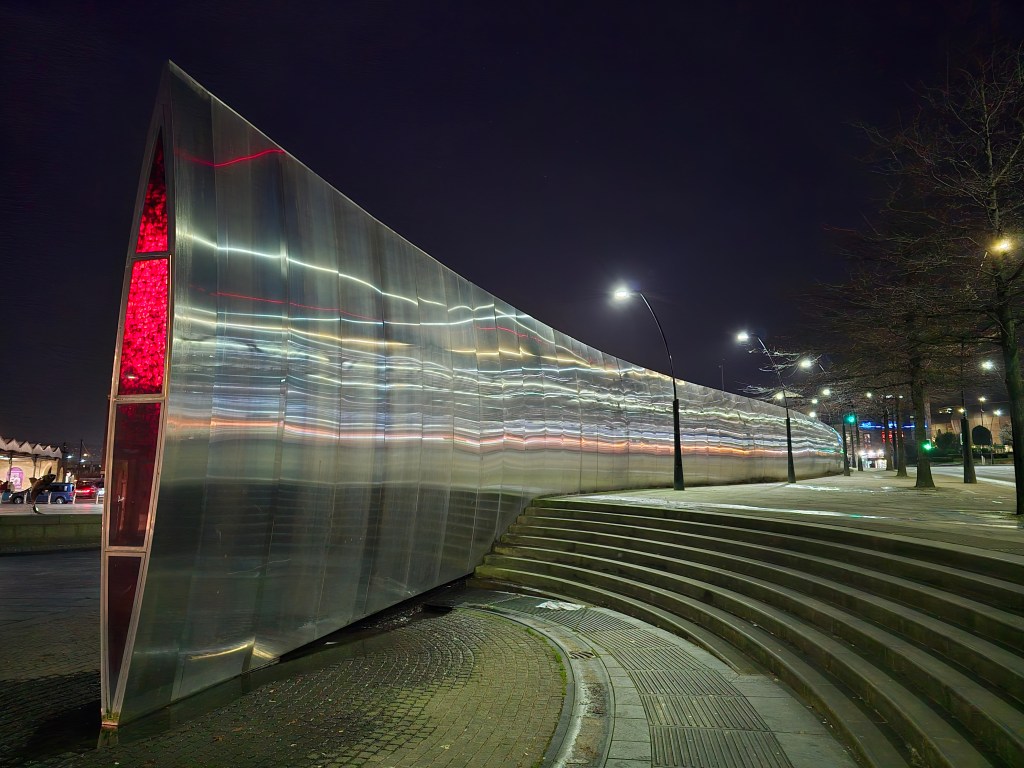
Low-light photography – there’s an improvement here, with better results than the S22 Ultra, but the difference is quite subtle, and there’s a tendency for reds to be over-exposed. You can also use the 3x and 5x cameras for low-light photography, but noise is quite high.
3X Telephoto Camera
The 10MP f/2.4 3x telephoto camera gives a 69mm equivalent and is great for distant shots, with very good results in good lighting conditions. If you want to try and take photos of close-up subjects, such as cats, then unfortunately even in good light, the camera will decide to crop from the main camera, giving you a much lower quality image.
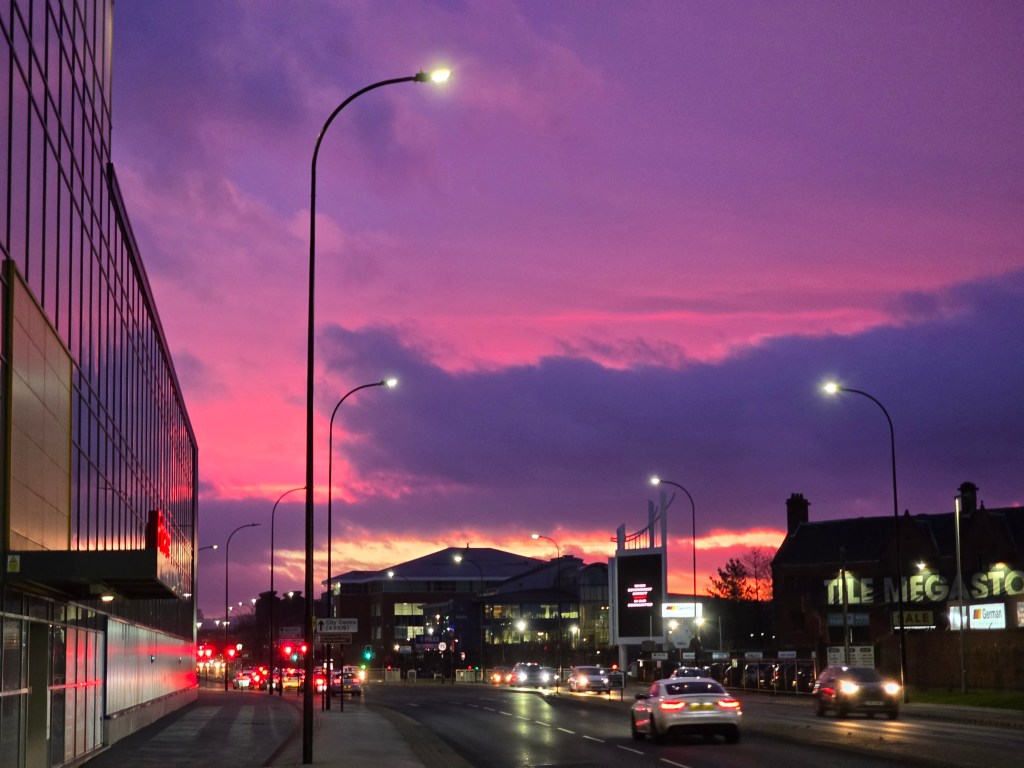
5x and 10x zoom compared…
In good lighting conditions, the S22 Ultra’s 10x telephoto camera does provide a little bit more fine-detail, when compared to the 10x zoom on the S24 Ultra, but there’s really very little in it, unless you spend all your time pixel peeping on a computer screen.
However, in low-light conditions, the S24 Ultra does a significantly better job with it’s telephoto camera, but still isn’t as good as the main camera with it’s much larger sensor.
Ultimately most people are going to find having a 3x and a 5x zoom (along with a 10x) a better option than having to jump from 3x to 10x zoom (as on the S22/S23 Ultra).
The 100x zoom option is best avoided, as you get a blurry mess – suitable perhaps for a once in a lifetime opportunity to photograph the Loch Ness Monster, but otherwise not something to brag about.
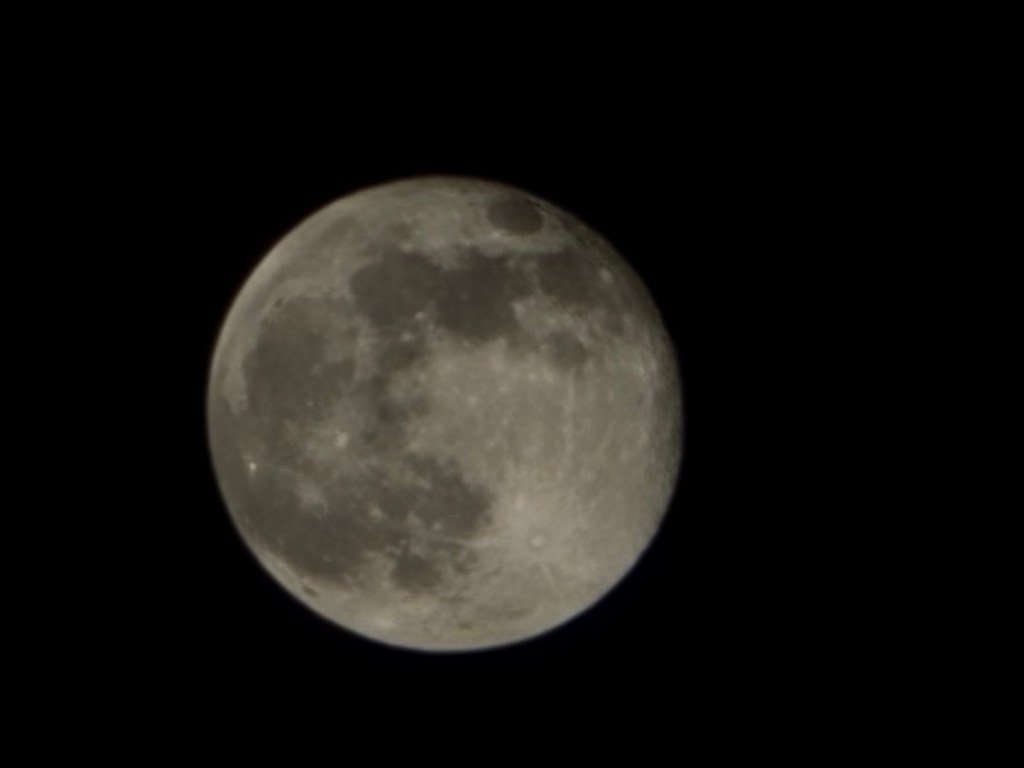
The less zoom you use, the better the result, but a Samsung S24 Ultra review wouldn’t be complete without an AI-assisted photo of the moon. This photo was taken at roughly 84x zoom. When the phone recognised the moon, a reasonable result was produced, but at other times this was a horrible mess.
Macro shooting
This is where things can get a little bit frustrating. By default, if you point the camera at a close-up object you want to photograph, the phone will switch from the main camera to the ultra-wide-angle camera and give you a cropped (and distorted looking) photo, as well as lower quality results in low-light.
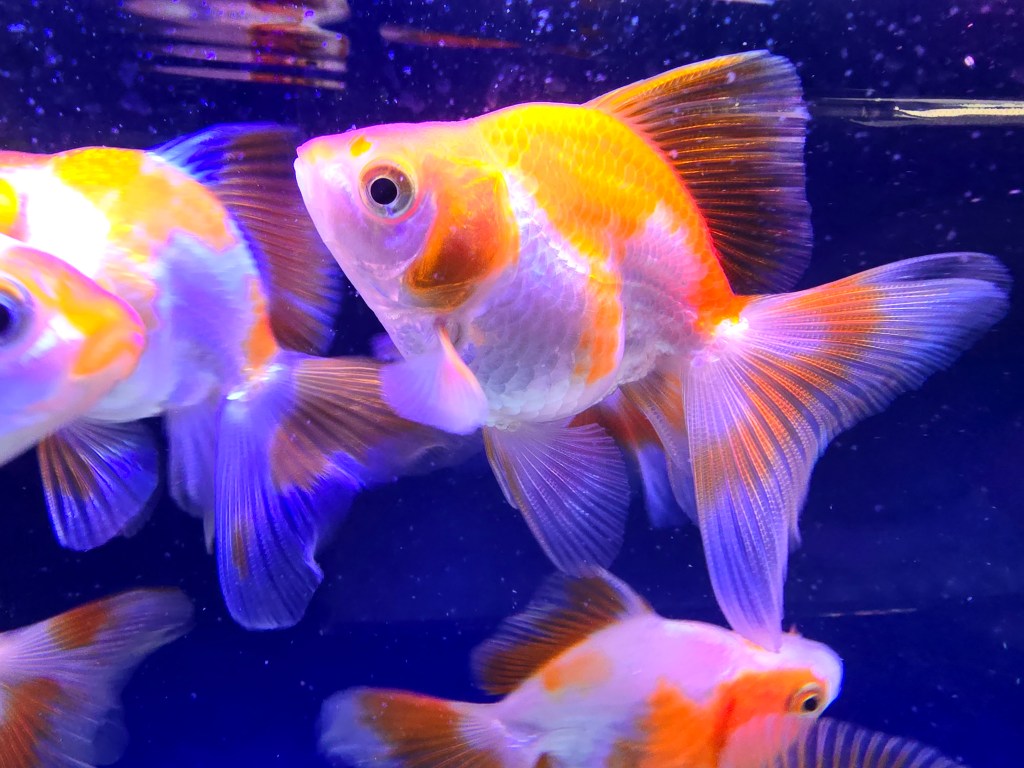
Switch to the 3x camera, and the phone will crop from the 1x camera – giving a pixelated, but relatively pleasing looking, image.
Switch to the 5x or 10x cameras, and the phone will again crop, this time from the 3x camera, giving a pixelated image. It’s quite frustrating, and it doesn’t advise you what’s going on until you look at the EXIF data after you’ve taken the shot. However, for the best results, the 5x option (which crops from the 3x camera) looks to give the best results.
Switch to a phone like the iQOO 12, OnePlus Open and 12, Vivo X100 Pro, and some Xiaomi phones, and you can use the telephoto camera for some gorgeous looking close-ups – in fact all of the product shots in this review were taken with the Vivo X100 Pro’s 4.3x telephoto periscope camera.
The 12MP selfie camera
Like the S22, S23 series, the S24 Ultra has a 12MP f/2.2 selfie camera, with auto-focus. This will help with selfie’s and group portraits as the camera can focus on the correct area, rather than having fixed focus like many other phones. It’ll also give benefits to video recording and vlogging, with the camera being capable of 4K video recording.
I found results were pleasing, with good colours, good exposure, and reliable focus. Background blur can be applied when taking the photo, or afterwards in editing, and the results are very good, even with a lot of fine detail.
Video recording
The 4K video mode gives you the choice of 60fps or 30fps. Results look very good, and you can switch between the different cameras whilst filming, with 0.6, 1x, 3, 5 and 10x options available. If you use these on-screen options the zoom jumps quickly between the zooms, but you can also use your finger and slide smoothly from 0.6x all the way to 20x zoom. This will give a really good amount of zoom, and a smooth looking video with fairly minimal “jump” between the cameras.
Value for Money
The obvious contenders in the flagship smartphone market are the Google Pixel 8 Pro, and iPhone 15 Pro Max, but with only 3 cameras on the back, do they really compete with the S24 Ultra? Well, if you want a 5x telephoto camera, and a 3x telephoto camera, then the S24 Ultra clearly wins.
In terms of pricing, the S24 Ultra is priced at $1,299 / £1,249 (256GB), whereas the Google Pixel 8 Pro is cheaper – especially right now, from $649 / £649 (128GB) and the iPhone 15 Pro Max is slightly cheaper at $1,199 / £1,199 (256GB).
If you go outside of these choices, the S23 Ultra can be found for much less, and will also be getting AI features as an update, and offers a 3x telephoto camera, along with a 10x telephoto camera. It’ll be interesting to see how this performs once it’s got the new AI features and updates. You can also save a lot of money by going for the S24, or S24 Plus, as long as you don’t mind the lack of a 5x telephoto camera.
Outside of Samsung, Apple, and Google, you have a range of choices, but availability in your area may be an issue. There’s the OnePlus 12 ($799 / £849, 256GB) which is widely available, and offers a 3x telephoto macro feature, but fixed focus selfie camera.
Outside of this, if available in your area, then the iQOO 12 ($700), and Xiaomi 13 Pro, are well worth looking at, as they all feature telephoto macro. There’s also the Vivo X100 Pro offering Zeiss branded cameras, a 1inch sensor, and a 4.3x telephoto camera as the zoom option, which can also be used for telephoto macro shots.
However, you’ll have to look at these phones carefully to see if they all offer a selfie camera with AF, as this is not always found on all phones.
Samsung Galaxy S24 Ultra Verdict
The Samsung Galaxy S24 Ultra makes some interesting updates, notably in style and design, and in terms of photography, there are improvements in the general image quality.
Beyond this, the AI tools can help improve photos further (reflection reduction is particularly welcome), and there are now Google/Adobe style AI editing tools including moving objects, deleting objects, as well as generative fill, with mixed results.
One area where we’d like to see more photographic tools is in the shooting experience, for example, where are the slow-motion / long exposure shooting modes? These can be found on Google Pixel phones, and other competitors like Vivo, Xiaomi, etc. Being able to capture a creative waterfall shot is really impressive, and once you’ve used it, you’ll not want to go to a phone that doesn’t have this feature.
The macro shooting experience and results could also be better, as we’re now seeing phones from OnePlus, Vivo (with the iQOO 12, and X100 Pro), Xiaomi, and others with really impressive telephoto macro capabilities that use the periscope camera, rather than just cropping from the ultra-wide-angle camera.
Beyond this, there are other flagship phones out there with 1inch sensors. Samsung are incrementally improving the cameras and features available, but can’t really be seen as especially cutting edge when looking at the wider market.
For video recording, you can go up to 8K video, but probably of more use is the ability to record 4K at up to 120fps, as well as the ability to make existing video slow-motion, thanks to AI.
One thing I’d really love to see is an improvement in shutter speeds, and shutter lag. There were multiple times where I missed the shot because the subject moved, due to shutter lag, or ended up with a blurred photo as the shutter speed wasn’t quick enough to freeze the motion. Perhaps this will be possible with a future update.
However, saying all this, for those that simply want the best camera phone out there, from a mainstream brand, the Samsung Galaxy S24 Ultra is without doubt, one of the best camera phones currently available. The release, around now, of the succeeding S25 Series does little to detract from this.
Whilst there will be those brand-loyal to Apple, and therefore an iPhone is the best choice for them, for everyone else, the Samsung Galaxy S24 series will make an excellent choice.
Sure, there are other phone brands out there, but often, the flagship models are only available in select markets, and until that changes, the S24 Ultra is the best Android phone you can buy right now. It offers more cameras than any other phone, and with a 3x and 5x telephoto camera, you can get a wider variety of shots. It’s also got an excellent 12MP selfie camera, with auto-focus, and 4K video recording, something that is still missing from some other flagships.

Specifications
| Main camera | 200MP f/1.7 main camera, with OIS, 1/1.3inch, 23mm |
| Ultra-wide-angle camera | 12MP f/2.2 ultra-wide-angle camera (0.6x), 13mm |
| Telephoto cameras | 10MP f/2.4 3x telephoto camera, with OIS, 69mm 50MP f/3.4 5x telephoto camera, with OIS, 115mm – 5x telephoto camera has 10x Super AI / Multi-frame / Super Resolution |
| Selfie camera | 12MP f/2.2 PDAF selfie camera |
| Video | 8K 30fps video, 4K 120/60/30fps |
| Screen | 6.8inch, 1-120Hz, 2600nits, with Corning Gorilla Glass Armor |
| Battery | Titanium frame, 5000mAh battery |
| Dimensions | 162.3 x 79 x 8.6 mm |
| Weight | 232g |
*AI features are currently free, but till when? Hopefully the in-camera AI features will remain free.

